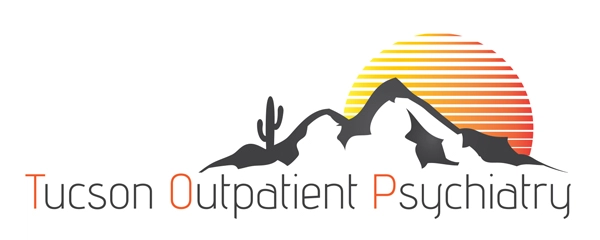Experiential Therapy in Tucson & Across Arizona
At Tucson Outpatient Psychiatry, we understand that talk therapy isn’t the right fit for everyone—especially when emotions or past experiences feel too big or complex to express verbally. Experiential Therapy is a creative, interactive approach that helps you explore and process those feelings using methods beyond conversation.
Whether you’re dealing with trauma, emotional overwhelm, or simply feel stuck, experiential therapy offers a powerful way to reconnect with yourself, release what’s been held inside, and move forward with clarity and strength.

What Is Experiential Therapy?
Experiential Therapy uses guided activities and creative expression to help you explore emotions, process experiences, and build emotional awareness. These methods might include:
- Art-based therapy
- Role-playing or guided imagery
- Movement or body-based practices
- Mindfulness and visualization exercises
The goal isn’t to “perform” or get it right—it’s to engage with your emotions in a more embodied, intuitive way.
This approach can help you access feelings and insights that might be hard to articulate in traditional talk therapy. It’s especially useful for processing past events, exploring identity, or working through emotional blocks.
Who Can Benefit from Experiential Therapy?
Experiential therapy is a flexible, creative option for people of all backgrounds. It may be especially helpful if you:
- Have trouble putting feelings into words
- Have experienced trauma or emotional suppression
- Feel disconnected from your body or emotions
- Want to explore your healing in a more interactive way
- Have tried traditional therapy but feel stuck
- Learn best through doing or expressing creatively
Whether you’re facing anxiety, grief, relationship issues, or emotional numbness, Experiential Therapy can help you reconnect with your emotional self and find new ways of processing and healing.
What to Expect in an Experiential Therapy Session
Experiential therapy sessions are tailored to your needs and comfort level. Your therapist may guide you through:
- Drawing, painting, or using visual imagery
- Role-playing or narrative work
- Guided movement or breathwork
- Symbolic exercises to externalize and explore your inner world
At the heart of DBT is a nonjudgmental, compassionate approach. We meet you where you are—with acceptance and No artistic or performance experience is needed. This is about emotional exploration, not artistic skill.
Sessions are collaborative, grounded in safety and trust, and paced in a way that feels supportive and empowering.
Not at all. Experiential Therapy isn’t about artistic skill—it’s about expression and emotional exploration. You don’t need any experience with art, movement, or performance. Your therapist will guide you in a way that feels accessible and comfortable for you.
Activities vary based on your needs and may include art-making, role-playing, guided imagery, movement, or mindfulness-based exercises. Each session is customized to support your emotional goals and comfort level.
Yes. Experiential Therapy can be especially effective for processing trauma or emotionally intense experiences that may be hard to express with words. It offers a safe, embodied way to explore and release emotional pain at your own pace.
In many cases, yes. Some forms of Experiential Therapy can be adapted for telehealth and conducted via secure video sessions. Your therapist will discuss whether virtual or in-person sessions are the best fit for your goals and preferences.
While talk therapy relies primarily on verbal dialogue, Experiential Therapy engages your body, creativity, and sensory awareness. It allows you to process emotions in a more interactive, often deeper way—especially when words fall short.


